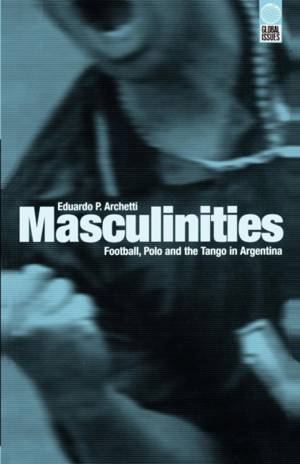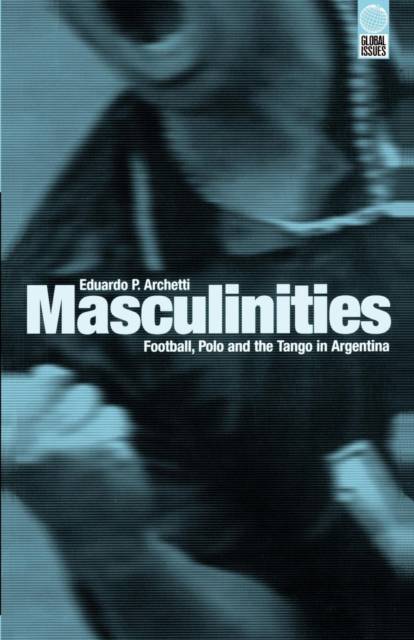
- Afhalen na 1 uur in een winkel met voorraad
- Gratis thuislevering in België vanaf € 30
- Ruim aanbod met 7 miljoen producten
- Afhalen na 1 uur in een winkel met voorraad
- Gratis thuislevering in België vanaf € 30
- Ruim aanbod met 7 miljoen producten
Zoeken
€ 79,45
+ 158 punten
Uitvoering
Omschrijving
The complex relationship between nationalism and masculinity has been explored both historically and sociologically with one consistent conclusion: male concepts of courage and virility are at the core of nationalism. In this ground-breaking book, the author questions this assumption and advances the debate through an empirical analysis of masculinity in the revealing contexts of same-sex (football and polo) and cross-sex (tango) relations. Because of its rich history, Argentina provides the ideal setting in which to study the intersection of masculine and national constructs: hybridization, creolization and a culture of performance have all informed both gender and national identities. Further, the author argues that, counter to claims made by globalization theorists, the importance of performance to Argentinian men and women has a long history and has powerfully shaped the national psyche. But this book takes the analysis far beyond national boundaries to address general arguments in anthropology which are not culture-specific, and the discussion poses important comparative questions and addresses central theoretical issues, from the interplay of morality and ritual, to a comparison between the popular and the aristocratic, to the importance of 'othering' in national constructions - particularly those relating to sport. This book represents a major contribution, not only to anthropology, but to the study of gender, nationalism and culture in its broadest sense.
Specificaties
Betrokkenen
- Auteur(s):
- Uitgeverij:
Inhoud
- Aantal bladzijden:
- 234
- Taal:
- Engels
- Reeks:
Eigenschappen
- Productcode (EAN):
- 9781859732663
- Verschijningsdatum:
- 1/03/1999
- Uitvoering:
- Paperback
- Formaat:
- Trade paperback (VS)
- Afmetingen:
- 143 mm x 216 mm
- Gewicht:
- 312 g

Alleen bij Standaard Boekhandel
+ 158 punten op je klantenkaart van Standaard Boekhandel
Beoordelingen
We publiceren alleen reviews die voldoen aan de voorwaarden voor reviews. Bekijk onze voorwaarden voor reviews.











